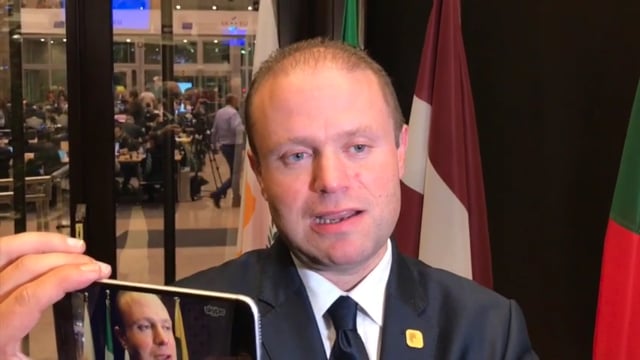[WATCH] EU-Turkey agreement to be replicated in Mediterranean – Joseph Muscat
Maltese Prime Minister Joseph Muscat says that the EU will focus on the central Mediterranean in the next leaders' summit to be held in Malta in February 2017, as Malta's insistence that the central Mediterranean was pivotal in the management of the migrant crisis was now acknowledged by other countries


The EU’s agreement with Turkey needs to be replicated for the central Mediterranean, which is pivotal to the immigration crisis and to the EU’s dealings with Turkey, according to Maltese Prime Minister Joseph Muscat.
Muscat, who was speaking to the media following discussions with other EU leaders at the European Council summit in Brussels on Thursday, said that the central Mediterranean would be the focus of discussions at the next leaders’ summit, to be held in Malta in February, as Malta’s insistence on the importance of the central Mediterranean was now mainstream among EU leaders.
He said there was a general consensus among the EU heads of state or government present that this issue needed to be addressed urgently.
“If you ask me, the EU needs to acknowledge that the agreement with Turkey needs to be replicated for the central Mediterranean, and therefore member states involved directly in the migration crisis but also transit countries like Nigeria,” he said.
Positive that EU migration focus turning on central Mediterranean. There is need of humanitarian, economic and border control package -JM
— Joseph Muscat (@JosephMuscat_JM) December 15, 2016
Muscat said the leaders had also agreed that the EU needed to engage Russia to ensure the Minsk agreement is respected by all parties, following cries for the EU to impose sanctions on Russia because of the situation in Aleppo.
EU-Ukraine Association Agreement
Muscat said the EU leaders had also reached an agreement with the Netherlands to allow the bloc to enact an agreement on closer ties with Ukraine.
The deal should allow the EU to show a united front in the face of an increasingly hostile Russia and boost trade and cooperation with an eastern European nation finding it hard to keep out of Moscow's sphere of influence.
The EU-Ukraine association agreement looked like a done deal until the Dutch government was forced into a referendum on it early this year. The rejection had left the EU in a bind since it needs unanimity.
The leaders agreed on Thursday that, while aiming to establish a close and lasting relationship between the the EU and Ukraine based on common values, the agreement would not confer on Ukraine the status of a candidate country for accession to the Union, nor will it constitute a commitment to confer such status to Ukraine in the future.
The agreement reaffirmed cooperation with Ukraine in the fields of security, notably with regard to conflict prevention, crisis management and non-proliferation of weapons of mass destruction.
It does not contain an obligation for the EU or individual member states to provide collective security guarantees or other military aid or assistance to Ukraine.
The agreement reached does not grant Ukrainian nationals or Union citizens, respectively, the right to reside and work freely within the territory of the member states or Ukraine.
The EU reiterated its commitment to support the reform process in Ukraine, but the agreement does not require additional financial support to Ukraine, nor does it change each member state’s exclusive right to determine the nature and volume of its bilateral financial support.
Respect for democratic principles, human rights and fundamental freedoms and respect for the principle of the rule of law are essential elements of the agreement.






.jpg)













.jpeg)

